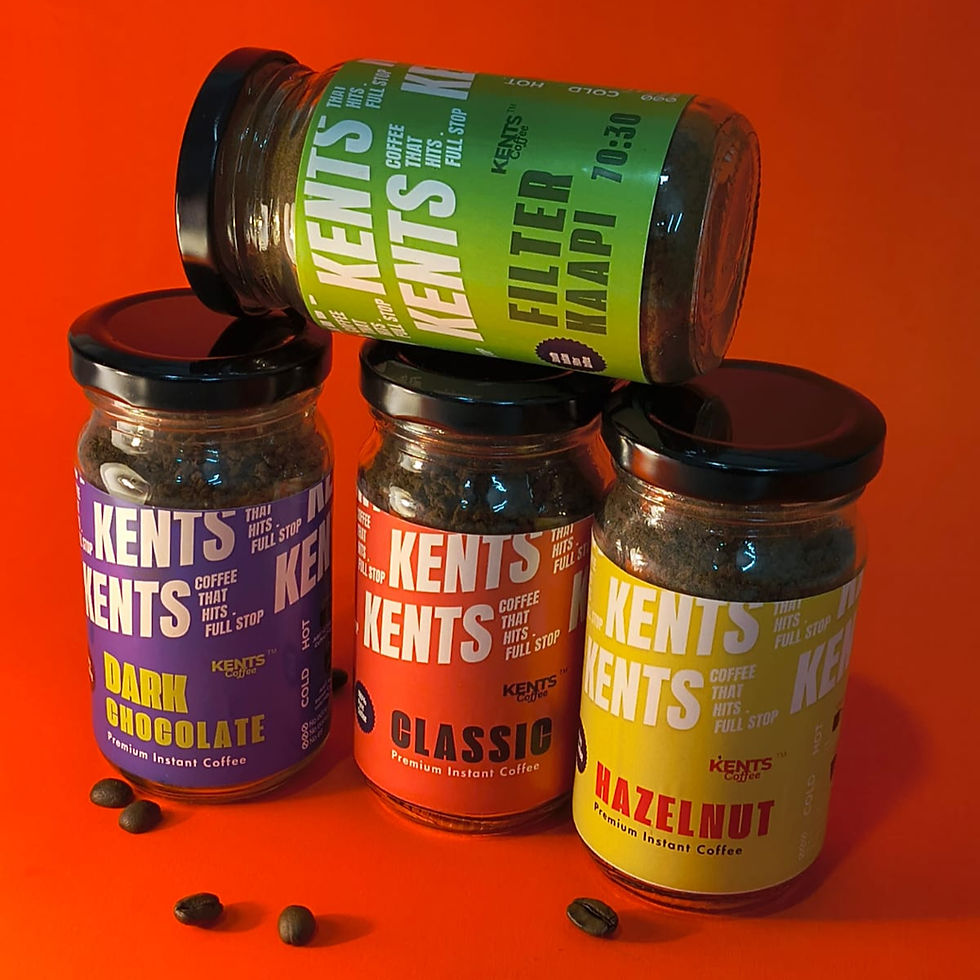Can Coffee Cause Heartburn? What You Need to Know About Caffeine, Acidity, and GERD
- Harsh Patel
- May 14, 2025
- 4 min read
Updated: May 21, 2025
Coffee is one of the world’s most beloved beverages, but for many people, it’s also a source of discomfort. If you experience heartburn or struggle with gastroesophageal reflux disease (GERD), you may be wondering whether your daily coffee ritual is to blame. In this blog post, we will explore how coffee affects your digestive system, the relationship between caffeine and heartburn, and whether coffee’s acidity plays a role in GERD. Let’s dive into the science of coffee, caffeine, and your gut.

Can Coffee Cause Heartburn?
For some people, yes, coffee can cause heartburn. Heartburn occurs when stomach acid flows back into the esophagus, causing a painful burning sensation in the chest. Coffee can contribute to this discomfort by increasing the production of stomach acid. Additionally, the caffeine in coffee may relax the lower esophageal sphincter (LES)—the muscle that prevents stomach acid from escaping into the esophagus. This relaxation can result in acid reflux, leading to heartburn.
It's important to note that not everyone experiences heartburn after drinking coffee. However, if you’re prone to acid reflux, you may want to pay closer attention to how coffee affects your digestive system.
Does Caffeine Trigger Heartburn?
Yes, caffeine can trigger heartburn in some individuals. Caffeine is a stimulant that increases the production of stomach acid. In people with a sensitive digestive system, the increased acid production, combined with caffeine's ability to relax the LES, can lead to acid reflux and heartburn.
If you're someone who suffers from acid reflux or GERD (gastroesophageal reflux disease), you may want to limit your caffeine intake or opt for decaffeinated coffee. While caffeine affects individuals differently, it remains one of the most common triggers for heartburn in many people.
Is Coffee More Likely to Cause Heartburn at Certain Times of Day?
Yes, the timing of your coffee intake can influence whether it causes heartburn. Drinking coffee first thing in the morning, on an empty stomach, can increase the likelihood of heartburn. This is because your stomach is already producing acid to prepare for food, and the addition of coffee may stimulate further acid production, leading to discomfort.
Furthermore, drinking coffee late in the day or close to bedtime can make it harder to sleep, and lying down after drinking coffee can increase the risk of acid reflux. To minimize heartburn symptoms, it’s best to avoid drinking coffee on an empty stomach and try not to drink it too late in the evening.
How Does Caffeine Affect GERD?
Caffeine is a major contributor to GERD (gastroesophageal reflux disease), a chronic condition where acid reflux occurs frequently. GERD is characterized by a weakened LES, which allows stomach acid to escape into the esophagus, causing painful symptoms like heartburn.
Caffeine can exacerbate GERD symptoms by increasing stomach acid production and relaxing the LES even further. If you suffer from GERD, it’s essential to be mindful of your caffeine consumption. For some people, even small amounts of caffeine in coffee, tea, or sodas can trigger painful flare-ups of GERD symptoms. Reducing or eliminating caffeine from your diet may help alleviate these symptoms.

How Does Coffee Affect GERD?
Coffee can have a direct impact on GERD due to its acidity and caffeine content. The acidity in coffee can irritate the esophagus and make GERD symptoms worse. Coffee also contains compounds like chlorogenic acid, which may further contribute to the acidity in the stomach.
While some people with GERD may be able to tolerate coffee in small amounts, others find that even a single cup can trigger a reflux episode. If you're struggling with GERD and coffee seems to make your symptoms worse, consider switching to lower-acid coffee varieties or avoiding coffee altogether.
Is Coffee Acidic?
Yes, coffee is acidic. The pH level of coffee typically falls between 4.85 and 5.10, making it mildly acidic. The level of acidity can vary depending on the type of coffee bean and the brewing method used. Light roast coffees tend to have higher acidity, while dark roast coffees are generally lower in acidity.
Higher acidity in coffee can irritate the stomach lining and the esophagus, which can lead to heartburn or worsen GERD symptoms. If you’re prone to acid reflux, choosing a darker roast or low-acid coffee might help reduce the chances of discomfort. Alternatively, you could explore non-caffeinated or herbal beverages that are gentler on your digestive system.
Conclusion
Coffee and heartburn don’t mix well for everyone, especially for those with GERD or acid reflux. While coffee can trigger heartburn due to its caffeine content and acidity, not everyone experiences the same effects. If you're someone who suffers from frequent heartburn, it’s important to monitor your coffee consumption and see how it affects you.
Consider opting for low-acid coffee, reducing your caffeine intake, or switching to decaffeinated coffee if you’re sensitive to the effects of caffeine. Additionally, be mindful of when you drink coffee—avoiding it on an empty stomach and too close to bedtime can help minimize the risk of heartburn.
If you find that coffee consistently worsens your GERD symptoms, it may be time to reconsider your coffee habits or explore other beverage alternatives. Always consult with a healthcare professional if you’re dealing with chronic heartburn or GERD to develop a plan that works for your unique needs.




Comments